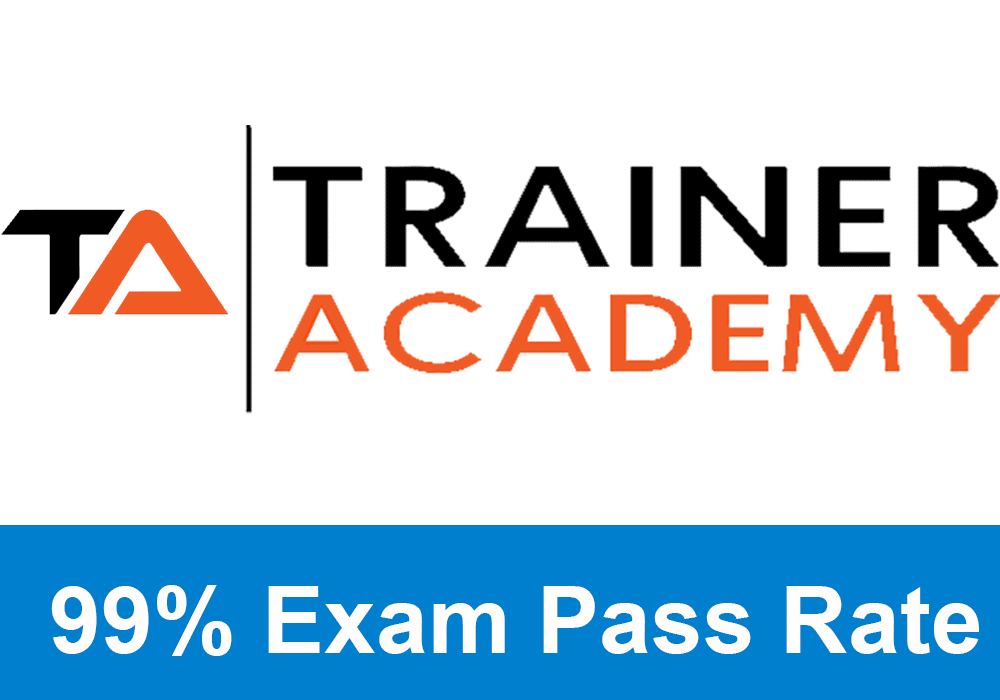Hello everybody, and welcome back to PT Pioneer.
In this article, I’ve laid out a definitive guide on How to Become a Sports Coach.
In this guide, I’ll tackle a few important aspects that will help you gain some clarity on this career path.
I also highly recommend that you take the quiz and find out which sports coach certification is best for your career goals.
Those will include:
- What are sports coaching
- Qualifications
- Jobs and business options
- Salary and income
After reading through this article, you’ll be able to make a more informed decision.
And with that said, let’s jump right into it.
![How to Become a Sports Coach this [year] - Jobs & Salary 4 How to become a sports coach](https://www.ptpioneer.com/wp-content/uploads/2021/08/How-to-become-a-sports-coach.png)
What is Sports Coaching?
If you’ve ever watched a big game or played fantasy football, you’ll know that the allure is based on aspiration.
Deep down inside, every sports fan is a sports fan because of how they live vicariously through their athletic heroes’ lives.
But it’s quite obvious that not all of us can be athletes.
If you find yourself in the nonathlete category but still have a passion and commitment to health, fitness, and athletic excellence, then perhaps a career in sports coaching is for you.
As the name suggests, sports coaching is simply coaching a sport.
But in this case, it gets a bit more complex and nuanced than that.
As a sports coach, you will make many valuable decisions.
This is especially the case in high-level professional sports where the management of team dynamics, training, health and fitness, and even psychological well-being come into play.
As a sports coach, you may even have a finger on the button regarding important executive decisions concerning a sports team’s corporate activities.
For example, being a manager (head coach) for a top-tier European soccer team is one of the most demanding jobs in modern sports, and a large part of that job is financial management with player transfers.
So as a sporting coach, you’re responsible for optimizing the performance of your team as well as deciding what that team looks like.
It requires a lot of knowledge, forward-thinking, and decisive initiative.
How to Become a Certified Sports Coach
To be a successful, reputable coach, you must learn the ropes of the sport you are coaching.
Unlike many other careers in fitness I’ve discussed, sports coaching is not a one size fits all field.
Sure, some concepts, modalities, and methodologies are consistent regardless of the sport, but these are just a framework.
The real meat and potatoes of sports coaching lie in how well you know the sport.
For that, having extensive experience playing the sport is important.
You don’t need to be good at it or even in any condition to play still; it’s all about having the knowledge and intelligence around the nuance of a sport.
This means everything from knowing the physicality and skills, an inside-out understanding of the rules and regulations, and finally, being in touch with the history, ethos, and contemporary culture of the sport.
As a sports coach, you aren’t only an instructor and manager to your athlete(s) but also a mentor and guardian.
With all that considered, becoming a fully-fledged sports coach requires credentials.
Sports Coach Certifications and Qualifications
Getting A Degree
The first this you’ll want to do as a sports coach is get a degree.
Unlike many other fields in fitness and physical performance, sports coaching is sensitive, and the stakes can get quite high.
The expectations and pressure can get overwhelming if you’re dealing with professional or even collegiate athletes.
You will need a degree’s extensive insight and training to equip you with the right set of skills and knowledge.
A degree also allows you to operate per regulations regarding top-flight leagues and competition circuits.
It’s also a guaranteed way to get the right kind of insurance and liability coverage.
A bachelor’s degree in sports science, exercise science, sports medicine, or sports management would suffice, but to get a grip on the nitty-gritty, a master’s degree or higher is what you want to aim for.
This separates you from the pack and puts you in line for top-flight sports management.
That’s because a degree symbolizes work, dedication, and authority based on how much of a resource investment a degree program is.
Exclusive PTP CPT Offers |
||
|---|---|---|
Most Popular Cert | Best Online NCCA Cert | Best Study Materials |
Gold Standard Cert | A Good Option | Best CPT for you?  |
So the higher your qualification level, the more access to bigger opportunities you’ll be granted.
Getting Certified
Besides getting a degree, you may also consider getting a certification that aligns with your chosen sport.
This will allow you to dial in on the specifics and streamline the knowledge acquired from your degree to suit.
Here at PT Pioneer, my main focus is on providing insight into the education and credentialing that goes into becoming a fitness pro.
However, in the case of sports coaching, not many of the sporting disciplines are covered by your typical certifying agency.
There isn’t exactly a baseball cert or a football cert.
Some sports do have certifications from the leading certifying institutions.
Disciplines like bodybuilding, weightlifting, and certain combat sports, to name a few.
These disciplines find themselves with popular, reputable certification options simply because they also lend themselves as good at promoting general fitness.
A sport like baseball, requiring high levels of athleticism at a tp-flight level, is not a fitness-centric activity for the general participant.
On the other hand, a sport like boxing will get you very fit even if you never step into a ring.
So how do you get a sport-specific certification when none of the main agencies like ISSA, ACE, or NASM don’t exactly offer them?
For that, you need to examine the governing body of the sport in question.
Depending on what level of the sport you are coaching, there is usually a regulatory body in charge of approving and verifying the coaches and managers that handle the teams and athletes.
For instance, using the example of European soccer again, to be a manager, you need to certify by obtaining the UEFA Certificate in Football Management.
In more local football terms, if you wanted to be an NFL coach, you would be certified with the USA Football Coach Certification.
Sports Coach Job Description
Sports coaching job opportunities are almost boundless when it comes to options.
Besides the different sports you can choose, there’s also a high variance in the athleticism and leagues you could engage with.
To look at a rudimentary example, you’d be able to coach high school sports teams and physical education.
This would require you to have an educational background in teaching since you’re dealing with kids in a learning environment.
Even high school sports coaching can place many demands, pressure, and expectations.
It is at this level that future athletes are initially discovered and form the foundation for what could be professional talent and skill.
That means sports coaching is a serious commitment whichever way you cut it.
So what will your job look like as a sports coach?
What are the strengths and requirements that will allow you to excel?
Here are a few things that come into play, no matter which sport it is:
- Charismatic leadership skills
- An in-depth, nuanced understanding of the sports rules, regulations, and culture
- Communication skills and interpersonal skills
- Experience
Charisma and leadership skills are required to get your athlete or athletes behind your plans, plays, and decisions.
Leadership skills are one thing, but having a charismatic quality about them will help you propel your athletes psychologically and physically.
A firm foundational knowledge of a sport’s rules and regulations is a no-brainer. Still, it’s also important to understand a sport’s nuance and prevailing culture.
Knowing what events, major players, and current affairs dominate the conversation around a particular sport is necessary to maintain a relevant approach to leadership as a coach.
It also allows you to stay ahead of trends and keep informed on development.
Communication and interpersonal skills are important in not just commanding your team or athlete but also in receiving valuable feedback.
Active listening in this regard can be more powerful than instructing.
Lastly, experience is important for a very simple reason.
The more time you’ve been in the game, the better you understand it.
That’s why most team managers and head coaches of top-tier teams and athletes are usually people past their middle age.
It would be best if you had time to develop your skills and understanding, no matter how talented you are.
Duties As A Sports Coach
I’ve gone at length describing what a sports coach is and how to become one, but what does the day-to-day activity of a sports coach look like?
Let’s break down some of a sports coach’s key roles and on-the-job duties.
Exclusive PTP CPT Offers |
||
|---|---|---|
Most Popular Cert | Best Online NCCA Cert | Best Study Materials |
Gold Standard Cert | A Good Option | Best CPT for you?  |
Scouting and Recruitment
Scouting and recruiting new talent is one of the essential tasks a sports coach will undertake.
If you’re a team coach, building an effective, successful roster of athletes is your primary goal.
The scouting and recruitment aspect of coaching usually targets younger athletes at a high school or collegiate level.
Because of this, a lot of time and knowledge on facilitating transfers or academy enrollment is required.
Performance Optimisation and Tracking
As a sports coach, you want your team or athletes to perform at their highest potential.
This means keeping a constant eye on their performance and implementing strategies to improve it.
On a superficial level, the quality of their training, recovery, injury prevention and management, and nutrition are your primary considerations.
Taking it a step further, your athletes’ mental state and psychology need to be managed.
This is especially true for team sports, where mental adaptation isn’t just about the pressure from the opposition but the ability to form a cohesive unit within the team dynamic.
At the top levels of sports, optimization and performance tracking require a dedicated team with whom you can delegate management tasks.
For example, you would have a dedicated dietician to manage nutrition, a strength and conditioning coach to optimize physical output, and a sports psychologist to keep everyone’s head in the game.
Athletes are often hindered by injury, so part of tracking and optimizing performance includes dealing with injuries.
Basic knowledge of first aid and primary care is necessary, but you will need a fully dedicated system for dealing with injuries and post-injury rehab.
Mentorship and Guardianship
As a sports coach, your athletes don’t just follow your commands; they follow your example.
Your character, personality, and history imprint how athletes behave and perform on and off the field.
A good coach plays the role of a parental figure and inspires respect within the ranks.
This has the benefit of making coaching easier.
There is much less resistance when it comes to accepting instructions and being able to covey them comprehensively.
Fostering Good Sportsmanship
This responsibility follows from the idea of mentorship.
Being a respectable figure in the eyes of your athletes allows them to adopt good traits that align with the good values and ethics of the sport in question.
It’s one thing to know how to play the game; it’s another to know how to play it with dignity and integrity.
When it comes to that, the burden rests on you to instill good values and conduct or make harsh decisions when those standards are unmet.
Securing Opportunities
Most serious athletes are deciding to forego the easy income option of the rat race in pursuit of their passion.
As a sports coach, you want to incentivize this decision by providing various resource opportunities.
These could be sponsorship, contract negotiations, endorsement deals, and non-sporting opportunities such as public speaking events.
This role requires a bit of networking on your part with brands and organizations.
Providing your athletes with auxiliary income streams also benefits you through commission and kickbacks on whatever deals are struck.
What Is An Average Sports Coach Salary?
When entering or even just entertaining the idea of any career field, we usually go to how much we can earn as an initial consideration.
When it comes to being a full-time sports coach, the average annual income is $33,680 per year, according to salary.com.
And according to indeed.com, the average hourly rate for a sports coach is $16.97 per hour.
This isn’t remarkable by any stretch, and you’re probably wondering why it’s so low if team managers of major teams or coaches of star athletes are so wealthy.
Well, here’s the thing, those top-flight sports coaches make up only a fraction of the total number of practitioners in the field.
Most sports coaches don’t even come close.
If you’re worried that working as a sports coach might not be the lucrative opportunity you’re looking for, don’t despair.
Certain factors influence earning potential and could help you elevate your income prospects.
Location
Location is a huge underpinning factor in income prospects.
Every year, millions, if not billions, of people relocate to a place where they can earn more money.
Depending on where you ply your trade, the same job or career field can have vastly different salary outcomes.
Location affects income in several ways, the most obvious being the state of the local economy.
This determines how much money is floating around that consumers can spend, some of whom will be spending it on you.
The economy also dictates the number of employment opportunities, infrastructure, and openness for business.
When it comes to sports coaching, and especially with professional teams, location is pivotal.
Many teams are specifically location-oriented.
Teams representing entire cities, states, and countries will require their coaches to be centrally located.
Qualifications
We’ve already reviewed the qualifications, but I’ve included them here to reiterate their importance.
The quantity and level of your qualifications both play a significant role.
By extent, I mean you can have too many certifications and credentials.
Having a bloated catalog of credentials after your name makes it confusing for those looking to understand what you’re about.
You can also go to the extreme with your qualifications.
For instance, you don’t need a Ph.D. in anything if you’re working as a sports coach.
Qualifications work in two ways.
The first way is the obvious skills and resources you’ll gain by earning your credentials.
These are essential when it comes to delivering the coaching service required.
The other way is how your qualifications are an immediate call to your skills and prestige.
Sometimes just having credentials attached to your name automatically raises your perceived value in the industry.
This allows you to leverage yourself for bigger and better coaching jobs.
Level of Experience
Another one I’ve already mentioned, your experience level determines how much skin you have in the game.
How much skin you have in the game determines your ability to propel athletes toward excellence.
Your experience indicates your reputation, which can propel you to greater opportunities in dealing with higher-level athletes and teams.
The most lucrative coaching opportunities usually come after a decade of experience.
Unlike many other factors that influence income and salary prospects, experience can’t be fast-tracked.
It is what it is, so staying in the game and cultivating a reputation as a reputable coach is the way to go.
With all that said, you must remember that your salary is simply one aspect of your total income.
You also have to consider your expenses.
Your operational expenses and cost of living will ultimately determine the value of the money you bring in.
Conclusion
Despite the challenges you’ll face as a Sports coach, it is a career opportunity that offers you much more than you’ll expect from other professions.
Being a sports coach is as rewarding as it is complex.
Unlike many career paths in fitness, sports coaching brings a lot of pressure.
When you coach clients as a personal trainer, the results and expectations are contained within the client-coach relationship you establish.
With sports coaching, the expectations and results are far-reaching and will involve many’s interests, from fans to sponsors and the media.
I hope you enjoyed this article.
If you have any comments, questions, or suggestions, please drop a few words in the section below, and I’ll get right to them.
FAQ
What qualifications do you need to be a sports coach?
How much do sports coaches make?
How long does it take to become a sports coach?
Can you be a coach without a degree?
What are the best schools to become a sports coach?
What are the different coaching positions?
What are the benefits of coaching?
What is the best way to find a sports coaching job?
References
- “Certification.” USA Football, https://usafootball.com/development-training/certification/.
- “Sports Performance Coach Salary Calculator.” Salary.com, https://www.salary.com/tools/salary-calculator/sports-performance-coach.

 Have a question?
Have a question? ![How to Become a Sports Coach this [year] - Jobs & Salary 5 How to Become a Sports Coach this [year] - Jobs & Salary 3](https://www.ptpioneer.com/wp-content/uploads/2023/02/ptp-quiz-desktop.jpeg)
![How to Become a Sports Coach this [year] - Jobs & Salary 6 How to Become a Sports Coach this [year] - Jobs & Salary 4](https://www.ptpioneer.com/wp-content/uploads/2023/02/ptp-quiz-mobile.jpeg)

It’s great that you emphasized that it is important for sports coaches to have charisma and leadership skills since they will need this if they want to lead athletes behind their plans, plays, and decisions. My brother is finally starting his first day as a high school baseball team coach next week, so I wanted to help him prepare for it. I’ll be sure to share this with him while I help him find a magnetic lineup coaching clipboard he can use for their practices moving forward.
Hey Elina, I’m glad this has helped you and your brother out. Good luck to him and his coaching!